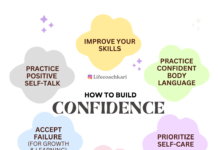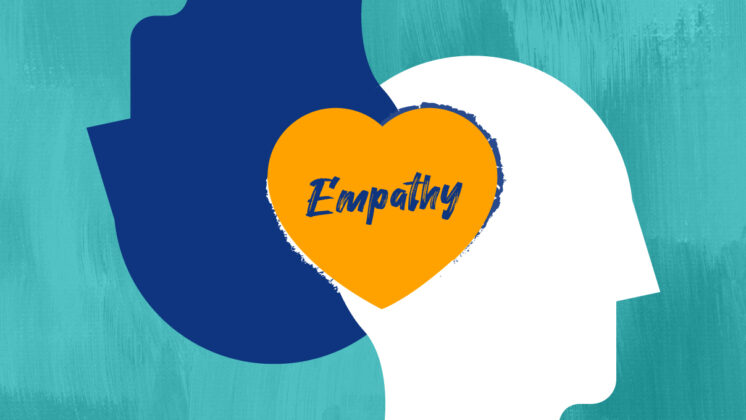The Power of Empathy: Building Stronger Connections
Introduction:
The capability to recognize and share the feelings of other people is a basic component of human interaction. It helps in creating strong relationships among individuals, nurturing kindness as well as cooperation within communities. The capability to recognize and share the feelings of other people is a basic component of human interaction. It helps in creating strong relationships among individuals, nurturing kindness as well as cooperation within communities. The capability to recognize and share the feelings of other people is a basic component of human interaction. It helps in creating strong relationships among individuals, nurturing kindness as well as cooperation within communities. This paper will discuss the importance of empathy in personal relationships, how it affects mental health and ways through which we can develop empathy in our daily lives.
Understanding Empathy:
This ability involves being able to identify with or understand somebody else’s emotions, thoughts or experiences. It goes beyond sympathy which simply means feeling sorry for another person due to his/her pain. Rather, it is actively putting oneself into someone else’s position mentally. Through empathy persons can connect more deeply with each other by bridging different points of view thereby facilitating mutual comprehension. To build up this understanding one needs both cognitive and emotional elements such as taking other people’s perspectives into account alongside resonating emotionally with their encounters.
The Significance of Empathy in Relationships:
Empathy is an important factor in establishing and maintaining meaningful relationships. When people feel that they are known and accepted by others, it becomes easier for them to believe in each other. Empathetic communication builds emotional closeness between spouses, friends, relatives or co-workers. By recognizing the feelings of others as valid individuals can create an environment where they can be themselves without fear. In addition to this point, showing empathy also helps foster empathic reciprocity so that if someone has shown understanding towards another person then he/she is likely to reciprocate with even greater care thus building on positive interaction within any relationship setting.
Empathy and Emotional Intelligence:
Emotional intelligence which entails being able to identify with and control one’s feelings while also recognizing them in other people is made up of many components among them being compassion. A person who possesses high levels of emotional intelligence will have an easy time dealing with others as well as themselves; such an individual will be good at managing interpersonal skills like resolving conflicts or creating healthy relationships. They understand what different facial expressions mean so when they see somebody sad or happy their response should match that particular mood too because this shows how much they care about others’ well-being; thus through developing more empathetic abilities individuals can improve their emotional intelligence thereby fostering deeper connections with others around them.
The Effects of Empathy on Mental Health:
Empathy can do wonders for mental health and overall wellness. Whether it is shown or received, people find a sense of validation and acceptance when they feel listened to and understood. In like manner, empathic listening has the ability to relieve loneliness, isolation as well as distress; thereby creating self-awareness and compassion towards others. Also, acts of kindness coupled with compassion trigger the release of ‘feel good’ hormones like oxytocin or serotonin which in turn leads to happier feelings while also lowering stress levels. Through fostering empathy within our relationships with others and day-to-day encounters, we set up an emotional safety net that supports mental health.
How to Develop Empathy
Empathy is not something you either have or lack- it’s a skill that can be mastered through deliberate effort overtime here are some ways on how you could develop empathy;
1. Active Listening: Be present when someone else is talking by keeping eye contact with them throughout their speaking turn so as listen actively without interrupting until they are done sharing where after nodding head slightly indicating that one understands what was said then reflect back paraphrasing speaker words showing comprehension of his/her point view about matter being discussed
- Perspective-Taking: Assume the other person’s position and try to understand the situation from their perspective. Use open-ended questions to get a sense of what they may be thinking or feeling, and take into account their history, experiences and beliefs that might shape how they see things.
- Validation: Validate the other person’s feelings by recognizing and showing empathy for them. Do not disregard or belittle their experiences even if you do not agree with what they are saying – let them know that it is okay for them to feel this way given where they are coming from.
- Practice Empathetic Communication: When expressing yourself about how something makes you feel or think, use “I” instead of “you”. Avoid making assumptions about what others feel inside but concentrate more on understanding where they come from emotionally without necessarily needing any advice or judgement at all; also watch out for the tone of your voice as well as body language since these nonverbal cues can communicate care and concern effectively.
- Cultivate Self-Compassion: Give yourself the same warmth and understanding that you would give someone else who is suffering. Take care of yourself physically, emotionally, socially etc., in order to create inner strength which can then be extended towards others through empathy; always remember self-compassion isn’t selfishness but rather an important part of caring for ourselves so we can care better for those around us too.
Conclusion:
The power of empathy is that it builds relationships, helps mental health and creates peace between people. The world would be more compassionate if we were able to listen actively, take others’ perspectives into account as well as communicate with care for one another on a daily basis. In doing so, not only will we develop deeper connections with those around us but also establish a global community which values kindness and understanding above everything else. Therefore by being empathetic towards each other’s feelings – striving to comprehend them better through love and support; we can foster true belonging everywhere while appreciating the diversity among ourselves too. Such an attitude should continually snowball humanity’s capacity for mercy across all borders thus benefiting individuals at personal levels besides whole societies altogether according to this view of things.
































